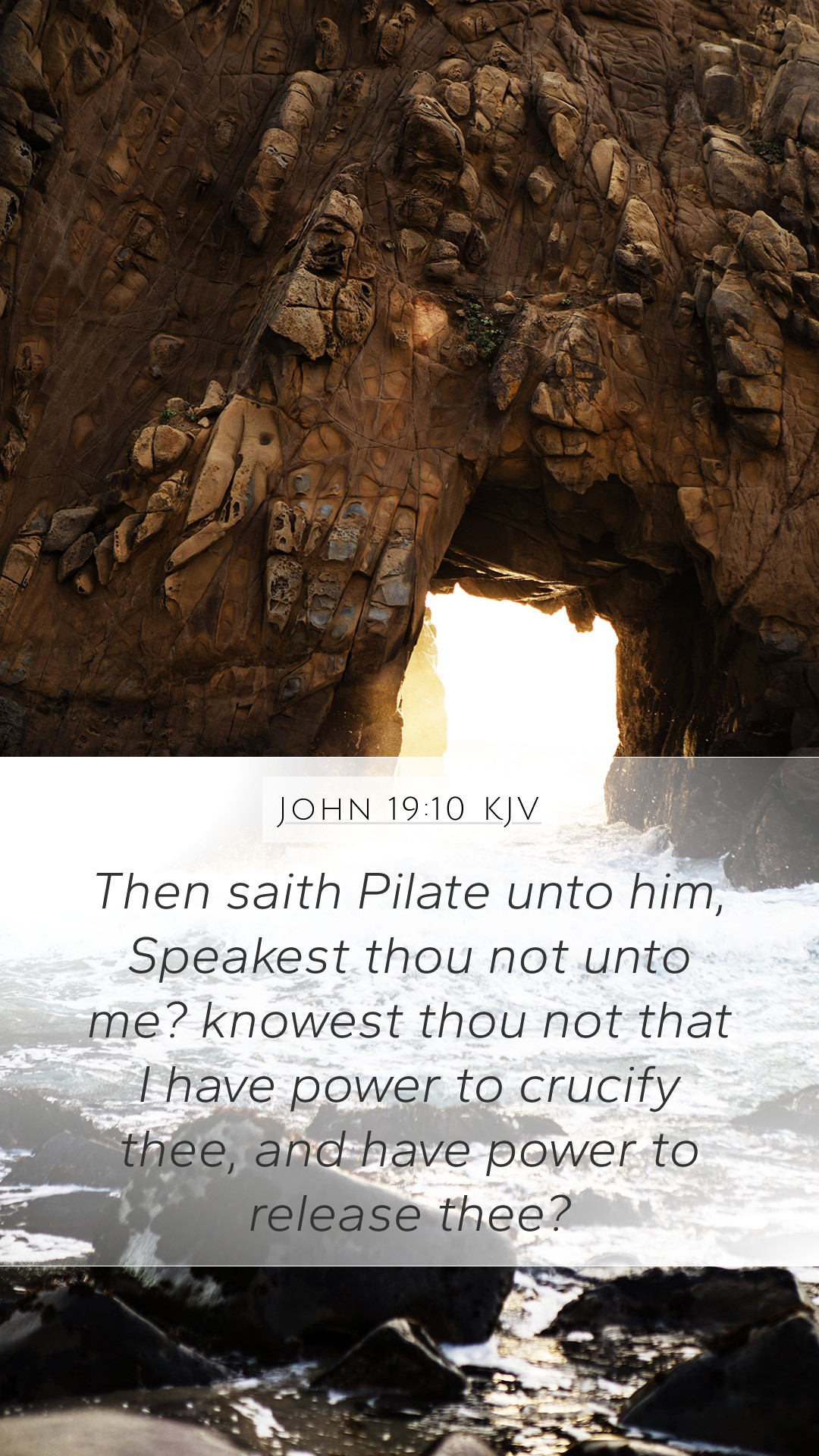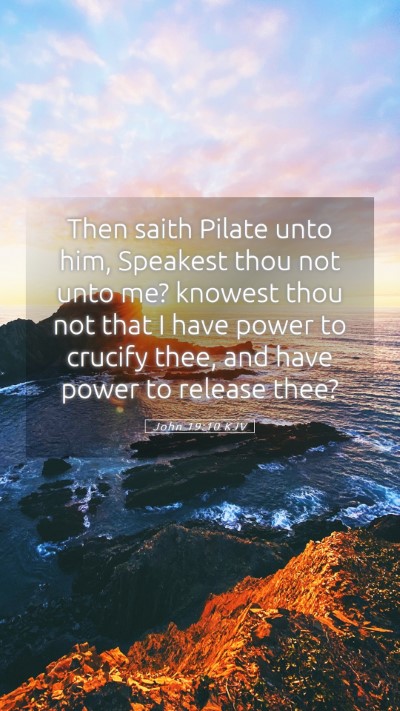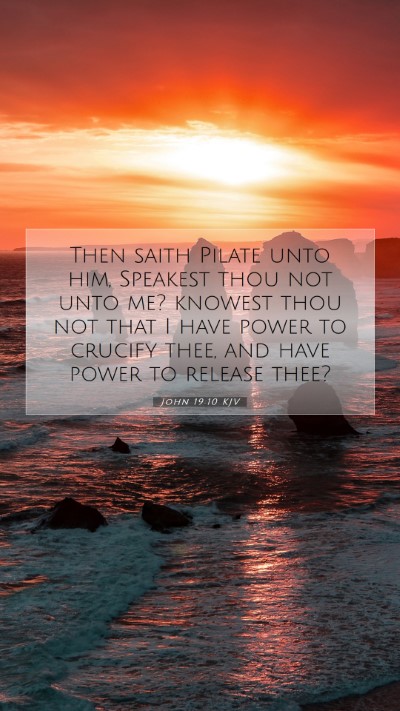Understanding John 19:10: A Comprehensive Bible Verse Commentary
Bible Verse: John 19:10 - "Then saith Pilate unto Him, Speakest thou not unto me? knowest thou not that I have power to crucify thee, and have power to release thee?"
In this verse, we witness a pivotal moment in the trial of Jesus before Pontius Pilate, a Roman governor. The tension is palpable as Pilate, faced with the weighty responsibility of deciding Jesus' fate, confronts Jesus directly, questioning His silence amidst the accusations against Him. This passage offers profound insights into power, authority, and the fulfillment of scriptural prophecy.
Commentary Insights
This analysis draws from renowned public domain commentaries to provide a deeper understanding of John 19:10. Below are the interpretations from several notable theologians:
- Matthew Henry:
Henry observes that Pilate exudes confidence in his earthly authority, underestimating the divine power of Jesus. He emphasizes that Pilate's power is temporary and conditional, primarily given by God. Jesus' silence implies His acknowledgment of a higher sovereignty, inviting readers to ponder the contrast between earthly power and divine purpose.
- Albert Barnes:
Barnes elaborates on the circumstances leading to this confrontation, highlighting Pilate's fear and reluctance to condemn an innocent man. He notes that Pilate’s assertion of power reflects the political climate of the era and serves as a reminder of the moral responsibilities leaders hold. The verse conveys a sense of futility in Pilate's claim as it ultimately leads to the fulfillment of God's plan through Jesus' crucifixion.
- Adam Clarke:
Clarke provides a linguistic and historical analysis, noting the nuances of Pilate’s words. He underscores that Pilate's question reveals his desperation to maintain authority. Clarke suggests that this moment depicts a struggle between spiritual truth and worldly authority, a theme prevalent throughout the Gospel. The passage encourages reflection on the nature of true power and its alignment with divine will.
Key Themes and Lessons
This verse is rich with themes that resonate throughout scripture:
- The Nature of Authority:
Jesus, despite being faced with mortal judgment, remains submissive to a divine plan, illustrating that true authority lies with God.
- Silence in the Face of Accusation:
Jesus' silence speaks volumes about His mission and purpose, encouraging believers to find strength in quiet trust amidst unjust circumstances.
- Human vs. Divine Power:
This encounter starkly contrasts the temporal nature of human power with the eternal authority of Christ, prompting believers to realign their perspectives on worldly matters.
Application for Daily Life
In examining John 19:10, let us consider its application in our lives:
- Recognizing the limits of earthly authority encourages believers to submit to God’s greater purpose and sovereignty.
- In moments of accusation or trial, we can find peace in knowing that God is ultimately in control, even when circumstances suggest otherwise.
- This passage invites us to reflect on how we exercise authority in our lives, challenging us to align our actions with God’s will.
Cross References
For further study, consider these related verses that enhance the understanding of John 19:10:
- Matthew 27:11-14: Jesus before Pilate and His silence.
- Luke 23:22-24: Pilate seeks to release Jesus but succumbs to public pressure.
- John 18:36-37: The nature of Jesus' kingdom and His witness to truth.
Conclusion
John 19:10 serves as a profound reflection on power dynamics—both earthly and divine. In this commentary, we have explored the verse’s meanings, interpretations, and applications through the insights of notable theologians. As we study this scripture, let us seek a deeper understanding of its implications on authority, justice, and faith.


